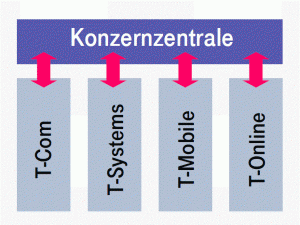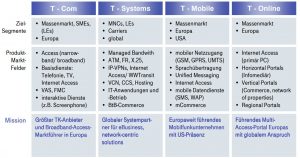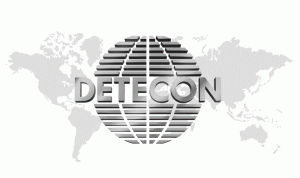Data / IP Portfolio
Unterstützung des Produktmanagements der T-Systems International GmbH bei der Durchführung der nationalen Portfoliobereinigung im Rahmen der Post-Merger-Integration. Erarbeitung eines umfassendes Konzepts inklusive Migrationsszenarien für Geschäftskunden auf Basis der neuen Vier-Säulen Unternehmensstrategie für die TIMES-Märkte:
“Fokussierung und strategische Neuausrichtung des Data/IP-Portfolios unter Berücksichtigung der neuen Verantwortlichkeiten im Konzern Deutsche Telekom.”
Aufgabenstellung
| Fokussierung Data / IP Portfolio |
Fokussierung und Neuausrichtung des Data / IP Portfolios des international agierenden Systemhauses nach der Fusion mit einem IT-Dienstleister. Optimierung und Verschlankung der kundenkritischen Prozesse im Rahmen der Konsolidierung:
|
Durchführung
- Analyse und Bewertung des bestehenden IST-Portfolios
- Ausgestaltung eines optimierten SOLL-Lösungsportfolios
- Business Case erarbeiten mit Abschätzung von Kosten und Nutzen
- Bestimmung der Konzern-Vorprodukte & Produktionselemente
- Empfehlung für die Ausgestaltung von Liefer- und Leistungsbeziehungen
- Analyse der Substitutionseffekte, sowie Sicherung der Konsistenz und Überschneidungsfreiheit
- Beschreibung der prozessualen Abläufe und IT-Systeme (BSS)
- Bewertung der technologischen Produktions- & IT-Plattformen (OSS)
- Ableitung der kritischen Erfolgsfaktoren
Ergebnisse
- Ausgestaltung der neuen Lösungsmodule im Portfolio
- Empfehlungen bezüglich des “Abmanagen” von Produkten im Produkt-Lifecycle
- Vorschläge für innovative Lösungsentwicklungen (Produkt-Roadmap)
- Erhöhte Wiederverwendbarkeit und Standardisierung der Produktionselemente
- Vorgabe der Anforderungen für die „Order-to-Bill“ Prozessimplementierung
- Festlegung geeigneter Migrationspfade für betroffene Bestandskunden
Kooperation
In Zusammenarbeit mit DETECON Consulting GmbH : www.detecon.com
Strategic realignment of Data / IP portfolio
Supporting the product management of T-Systems International GmbH in carrying out the national portfolio streamlining as part of the post-merger integration. Development of a comprehensive concept including migration scenarios for business customers based on the new four-pillar corporate strategy for the TIMES markets:
“Focusing and strategic realignment of the Data/IP portfolio, taking into account the new responsibilities in the Deutsche Telekom Group.”
Task
“The project aims to develop a management decision template for the short- and medium-term optimization of the data/ IP portfolio and for strategic realignment.
In particular, the market focus on TSI customers as well as profit optimization are in the foreground.
This template includes analyses of the current portfolio and that of relevant competitors, the target portfolio optimized from a market perspective, migration scenarios, implementation concepts, and a business case with an estimate of costs and benefits.”
Implementation
- Analysis and evaluation of the current portfolio
- Design of an optimized target solution portfolio
- Develop business case with estimation of costs and benefits
- Determination of group pre-products & production elements
- Recommendation for the design of supply and service relationships
- Analysis of substitution effects, as well as ensuring consistency and freedom from overlap
- Description of process flows and IT systems (BSS)
- Evaluation of the technological production & IT platforms (OSS)
- Derivation of critical success factors
Results
- Design of the new solution modules in the portfolio
- Recommendations regarding the “unmanaging” of products in the product lifecycle
- Proposals for innovative solution developments (product roadmap)
- Increased reusability and standardization of production elements
- Specification of requirements for “order-to-bill” process implementation
- Definition of suitable migration paths for affected existing customers
Cooperation
In cooperation with DETECON Consulting GmbH: www.detecon.com
TSI : T-Systems International GmbH, www.t-systems.com
Explanatory notes
“The TIME industry market comprises the services of providers in the telecommunications industry, information technology, so-called media companies, and the entertainment industry, whose respective initials make up the TIME acronym. This market is characterized by the fact that the customer has to make at least three separate decisions before using the service. They must purchase a terminal device, select a network structure or connection technology, and decide whether to use certain content. These three decisions are interdependent, as they are only useful to the consumer in combination.”





